As a new academic year begins, Clark University is welcoming 15 new tenure-track faculty members who hail from locations across the globe, as well as four current faculty whose visiting positions have been converted to renewable appointments. They bring to their classrooms a range of expertise in management, political science, psychology, visual and performing arts, history, computer science, geography, math, and languages — from youth-led activism for violence prevention to econometrics, software design, and the humanitarian impact of international organizations.
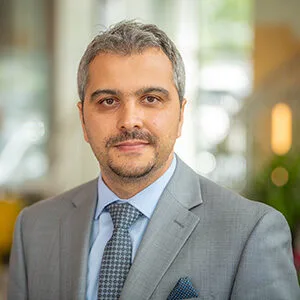
Abdullah Asilkalkan
Assistant Professor, School of Management
Abdullah Asilkalkan’s research encompasses a range of areas, including business analytics and health care analytics, as well as the applications of model-based clustering and hidden Markov models. His health care analytics work centers around using AI and machine-learning algorithms to create patient-specific risk categories and decision-support tools that will facilitate decision-making for health care providers. Asilkalkan’s research has earned recognition in esteemed journals such as the Journal of Business Research, Annals of Operations Research, and Advances in Data Analysis and Classification, among others. Asilkalkan is a member of professional organizations including INFORMS, the Decision Sciences Institute (DSI), and the American Statistical Association (ASA). He holds both master’s and doctoral degrees in applied statistics from the Department of Information Systems, Statistics, and Management Science at the University of Alabama.
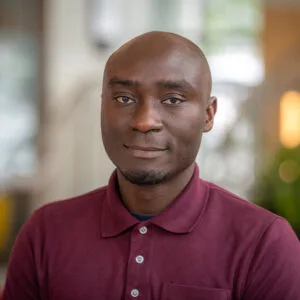
Oheneba A. Boateng
Assistant Professor, Political Science
Oheneba A. Boateng investigates the evolution and impacts of international organizations in regional and global affairs. Trained in history, globalization, and political science, he researches and teaches about how intergovernmental organizations like the African Union and United Nations, as well as transnational nongovernmental groups, are created, the impact they have, and the challenges with which they are confronted. Much of Boateng’s research focuses on the roles of these organizations in humanitarianism and their place in broader international relations. His research heavily influences his teaching interests in African politics, international organizations, global governance, nongovernmental organizations, and humanitarianism. Boateng is currently completing a book on the competition between African regional humanitarianism and global governance systems. He holds a Ph.D. in political science from the Free University Berlin in Germany.
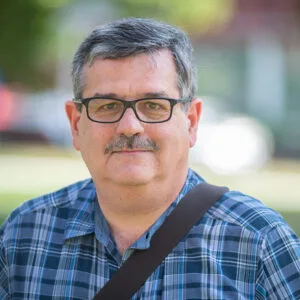
Edward S. Cohen
Teaching Professor, Political Science
Edward S. Cohen is a scholar of global political economy, particularly the interactions between international political-economic dynamics and the role and practices of modern states. His recent work has focused on how private and public international law shapes the nature of contemporary governance and the distribution of power and wealth in the global political economy. At Clark, he teaches courses in U.S. public policy, environmental politics and policy, and international political economy, and also directs the University’s Prelaw Advising Program. Cohen comes to Clark after a long career in teaching, research, and advising at Westminster College in Pennsylvania. He earned his master’s and doctorate in political science from the University of Wisconsin–Madison and his bachelor’s from Brooklyn College.
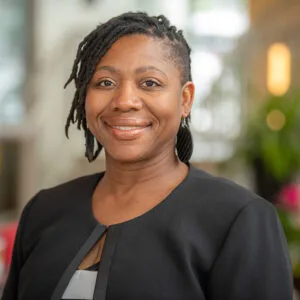
Samantha Francois
Associate Professor, Psychology
Samantha Francois is a developmental scientist with expertise in adolescent development, structural violence, and anti-racist research. As an interdisciplinary, community-engaged scholar, Francois uses systems perspectives and critical race theory to understand the intersections of the individual, community, and structural factors that impact development in Black and African American adolescents and emerging adults. She also conducts intervention research on youth-led organizing and activism as violence prevention strategies. Francois uses community-based, participatory, and action research frameworks to conduct mixed-method research studies with marginalized and oppressed communities, with the goals of health equity, social transformation, and community liberation. Francois recently served as co-executive director of Tulane University’s Violence Prevention Institute and co-director of the Center for Youth Equity, a CDC Center of Excellence in youth violence prevention. She earned a doctorate in psychological sciences from Tulane University.
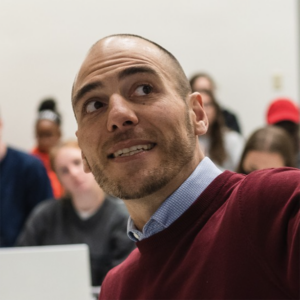
John Freyermuth
Associate Teaching Professor, Visual and Performing Arts
John Freyermuth specializes in audio engineering. He has previously taught at the Savannah College of Art and Design and Lamar State College in Texas, and also works as a freelance audio engineer with services including multi-track recording, producing, mixing, and music composition. He earned his MFA in sound design at the Savannah College of Art and Design and his bachelor’s in audio/ radio at Emerson College.
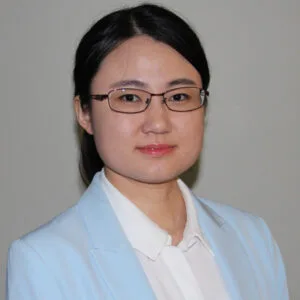
Yue Gao
Assistant Teaching Professor, School of Management
Yue Gao employs applied econometrics and machine-learning methods to analyze large-scale datasets and better understand business and individual behavior and its theoretical foundation, providing insights to inform theories and decision-makers in the areas of environmental and sustainable development and health care management. Gao has presented her work at international conferences on digital government research, including the Decision Sciences Institute Annual Conference, the Association of Environmental and Resource Economists Annual Summer Conference, and annual meetings of the Institute for Operations Research and the Management Sciences. In addition to working in the Boston Research Data Center of the U.S. Census Bureau and National Bureau of Economic Research, she has taught courses at Clark’s School of Management since 2018. Gao earned her doctorate in economics in 2016 and a master’s in finance in 2012, both from Clark University.
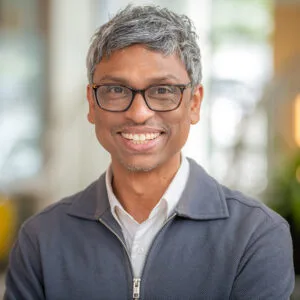
Cyril Ghosh
Associate Professor, Political Science
Cyril Ghosh’s books include “The Politics of the American Dream: Democratic Inclusion in Contemporary American Political Culture” (Palgrave-Macmillan, 2013), “De-Moralizing Gay Rights: Some Queer Remarks on LGBT+ Rights Politics in the US” (Palgrave-Pivot, 2018), and, with Elizabeth F. Cohen, “Key Concepts in Political Theory: Citizenship” (Polity, 2019). In the past, he has taught at several institutions, including Wagner College, Mount Holyoke College, Smith College, and Reed College. Ghosh received a bachelor’s in political science and a master’s in international relations from Jadavpur University, Calcutta (Kolkata), India. He also earned a master’s and doctorate from the Maxwell School of Citizenship and Public Affairs at Syracuse University, and a master of public administration from New York University.

Pawan Gupta
Assistant Teaching Professor, Computer Science
Pawan Gupta is a software engineer who is passionate about software design and creating software that addresses issues. Since 2007, he has been a visiting professor at institutions including the College of the Holy Cross, Assumption University, and Becker College. During his software career, he has served as principal engineer, tech lead, automation engineer, and quality assurance engineer. He earned a master’s in engineering in software design from Northeastern University and a bachelor’s in computer science from the University of Massachusetts–Lowell.
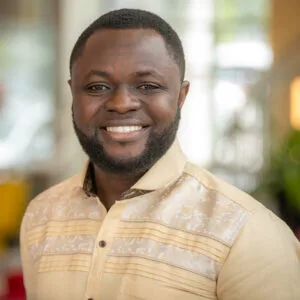
Nana Kesse
Assistant Professor, History
Nana Kesse is a historian who specializes in African environmental history, specifically focusing on water systems and bodies of water. His research examines how Africans interacted with waterbodies throughout history and how this relationship shaped the continent’s past. His ongoing project, “Living with Water,” investigates the intricate livelihoods of the people of Nzulezo, who lived in stilt houses in the middle of southwestern Ghana’s Amanzule River from the mid-18th century to the early 2000s. To support his work, Kesse has been awarded competitive grants and fellowships including the Woodrow Wilson Fellowship, the Fulbright-Hays Fellowship, and the Otumfuo Educational Fellowship from the Otumfuo Osei Tutu II Foundation (an educational fund of the King of the Asante Kingdom).
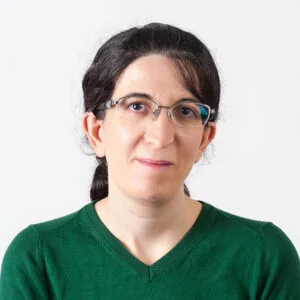
Elahe Khalili Samani
Assistant Professor, Mathematics
Elahe Khalili Samani’s research is in a branch of mathematics known as Riemannian geometry, and focuses on the connection between the geometry and topology of geometric objects called Riemannian manifolds. Before coming to Clark, she was a visiting assistant professor at the University of Notre Dame from 2021 to 2023. Khalili Samani earned her doctorate in mathematics from Syracuse University, her master’s degree from Amirkabir University of Technology, and her bachelor’s from the University of Tehran.
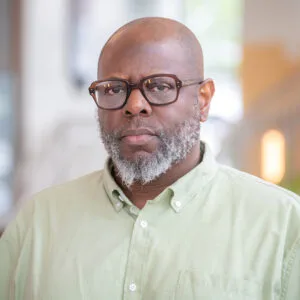
James Maurelle
Assistant Professor, Visual and Performing Arts
James Maurelle is an interdisciplinary artist whose analog and digital primes include sculpture, video, photography, and sound art. His work investigates the correlation between labor and creativity, and has been shown in solo and group exhibitions in New York, Minneapolis–Saint Paul, Austin, Philadelphia, Brussels, Richmond, Los Angles, Cincinnati, and San Francisco. He is a 2022 Pew Fellow and a recipient of the Skowhegan School of Painting and Sculpture Fellowship. Maurelle has held academic appointments at Drexel University and the University of Pennsylvania, and he has lectured at Penn State University and Rutgers University. He earned his MFA from the Weitzman School of Design at the University of Pennsylvania, and a BFA at the San Francisco Art Institute.
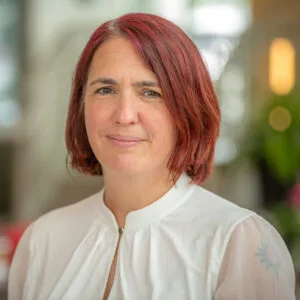
Siobhan McGrath
Associate Professor, Geography
Siobhan McGrath takes a political economy approach to labor, working within labor geography, economic geography, and development geography. Her scholarship to date has focused on “unregulated work,” including wage theft and other violations; how to understand freedoms and unfreedoms within labor relations; how labor unfreedoms are represented and acted upon through categories such as “modern slavery”; and how conditions of work are determined through the dynamics of Global Production Networks (GPNs). She has taught at Manchester University, Lancaster University, and Durham University in the United Kingdom, and also has worked within, and alongside, the labor movement. She holds a doctorate in international development from the University of Manchester, a master’s in economics from the New School for Social Research, and a bachelor’s from the School for International Training.
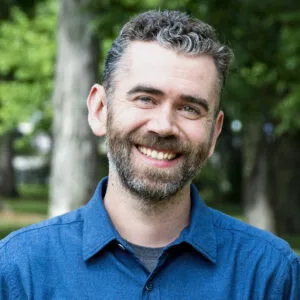
Alexander Murphy
Assistant Professor, Language, Literature, and Culture
Alexander Murphy researches modern Japan with a focus on the relationship between sound, language, and the body across literature, media, and performance. He studies how aurality enlivens subject formation and social life in transmedial and border-crossing practice, and how the study of voice and sound can be brought to bear on matters of race, gender, and mobility. Murphy’s teaching interests include transpacific cultural production, modernism and the global jazz age, popular and avant-garde performance, and media theory. His current book project explores the aesthetics and politics of the voice in interwar Japan at the intersection of music, poetry, and public speech. He is also a musician and translator of Japanese literature and criticism. Murphy earned his doctorate from the University of Chicago and a master’s from Columbia University.
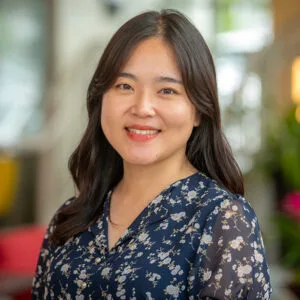
Jisoo Park
Assistant Professor, School of Management
Jisoo Park’s work focuses on facilitating organizational learning by examining the combined impact of various learning processes. Her work primarily explores the health care sector, where she believes that organizational learning can enhance patient care and promote the adoption of best practices. In her research, she employs a range of methods, with a primary reliance on econometric analyses of archival data. Park has been nominated for best paper awards at both the Academy of Management Annual Meeting and the Strategic Management Society Annual Conference. Prior to joining academia, she worked in the asset management and insurance industry. She holds both doctoral and master’s degrees in organizational behavior and theology from Carnegie Mellon University, and earned her bachelor’s in economics and mathematics from Cornell University.
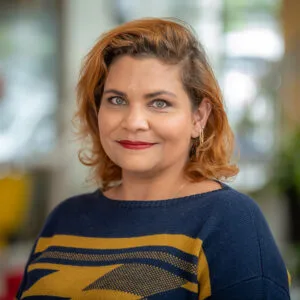
Naomi Pitamber
Assistant Professor, Visual and Performing Arts
Naomi Pitamber is an art and architectural historian of the Byzantine and Crusader periods, and her research interests include the role of memory in the production of material culture, architecture, and the landscape by populations on the move in those times. Her research in Greece, Italy, and Turkey has been supported by the Fulbright Foundation, the Andrew W. Mellon Foundation, and the National Endowment for the Humanities, among others. Her first book, “Byzantium and Landscapes of Loss: The Recreation of Constantinople in the Laskarid and Palaiologan Eras,” will be published by Cambridge University Press in 2024. Her ongoing co-directed digital humanities project, “Salvaging Crete: Preserving the Legacy of the Artist Ioannis Pagomenos,” is an interdisciplinary study and documentation of the current architectural conditions of eight late Byzantine–early modern churches in Crete. She has taught at Simon Fraser University, the University of Wyoming, Penn State University, and Eastern Michigan University. She received her doctorate in art history from UCLA.
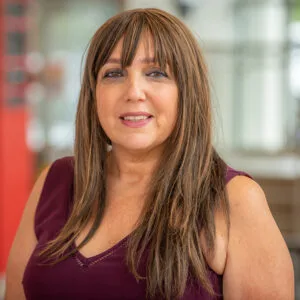
Elyse Semerdjian
Professor, History
Elyse Semerdjian is a social historian of the Ottoman Empire; her research focuses on the experiences of women and the empire’s Armenian subjects. Her books include “‘Off the Straight Path’: Illicit Sex, Law, and Community in Ottoman Aleppo” (Syracuse University Press, 2008) and “Remnants: Embodied Archives of the Armenian Genocide” (Stanford University Press, 2023), and she has also authored articles on gender, Ottoman Armenians, urban history, and law in the Ottoman Empire. Semerdjian served as Dumanian Visiting Professor in Armenian Studies at the University of Chicago and was awarded a Cornell University Society for the Humanities Fellowship in 2016. In 2022, with the Religion and Urbanity Research Group at the University of Erfurt, she received a German Research Grant to write a history of Aleppo’s Armenian community, from Ottoman rule to the present disappearance of Armenians from the post-war landscape. Semerdjian received her doctorate in history from Georgetown University and master’s in Middle Eastern studies from the University of Michigan–Ann Arbor.
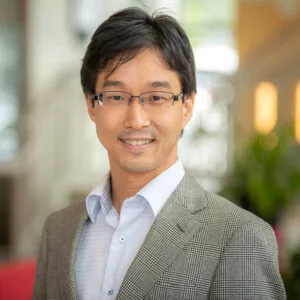
Kensuke Suzuki
Assistant Professor, Economics
Ken Suzuki studies international economics, spatial/regional economics, and labor economics, with an emphasis on understanding how globalization affects workers and firms and shapes aggregate economic impacts at national and regional levels. His current research examines the implications of Japan’s immigration policy on local labor market outcomes and production. He is also interested in the Chinese trade liberalization in the early 2000s and the structural change of the advanced economy in the context of globalization. He earned his doctorate in economics from the Pennsylvania State University and holds both master’s and bachelor’s degrees from Nagoya University, Japan.
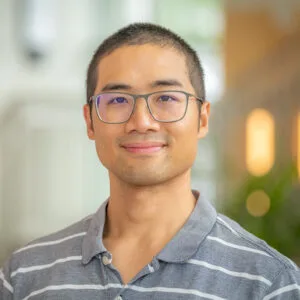
Lewis Tseng
Associate Professor, Computer Science
Lewis Tseng’s research aims to make distributed systems (e.g., cloud computing and crypto) trustworthy. His research group designs and builds high-performance fault-tolerant distributed systems by identifying principles for distributed coordination primitives. Prior to joining Clark, Tseng was an assistant professor at Boston College, and previously was with Toyota Info Technology Center — during that time, he successfully filed three patents on vehicular clouds. This year, he received the prestigious National Science Foundation CAREER award. He won the best paper award at the International Symposium on Stabilization, Safety, and Security of Distributed Systems in 2017, and won the 2022 Illumination Award and 2022–23 Teaching-Advising-Mentoring grant at Boston College. He earned his doctorate from the University of Illinois at Urbana-Champaign.
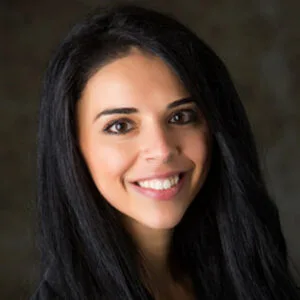
Vasilia Vasiliou
Assistant Teaching Professor, School of Management
Vasilia Vasiliou teaches leadership, management, and organizational behavior. Her research interests include managing diversity, diversity in leadership and teams, and organizational culture. She serves as a research associate on the transdisciplinary C-Change (for culture change) Research Team and collaborates on qualitative and quantitative data analyses for “Career Development and Culture Change in Biomedical Research: Group Peer Mentoring Outcomes and Mechanisms,” an NIH-funded project. Vasiliou received her doctorate from Bentley University, where she was the Center for Women and Business Fellow; her MBA from the Cyprus International Institute of Management, and her bachelor’s (honors) in mathematical science from the City University of London.


